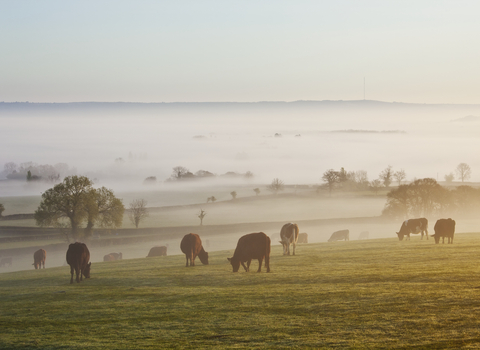The next decade will see considerable upheaval in the countryside with potential changes to land use and a shift in the business model for landowners. Land management looks likely to come under closer scrutiny and future government payments will only be available for supporting the delivery of targets for halting biodiversity loss, reducing climate change, reducing air and water pollution, mitigating flooding etc. There is a period of planned change starting in January 2021 as direct payments will start to taper off and finally end by 2028.
A thriving natural environment is fundamental to the security of the economy and wellbeing of society but it’s under strain. Given that over 70% of the UK’s land is farmed, it also holds the biggest potential to reverse the fortunes of wildlife. As area-based subsidies are phased out, farmers and land managers will need support in moving towards alternative uses and income streams for their land. If we are to build a more resilient and regenerative food system, with farming and nature working hand-in-hand, farmers and land managers will need support to understand where and how to best take action - land management advice will be critical to this.
Land management advice
We work with farmers and land managers to help restore natural systems alongside effective food production. Our specialist staff provide advice to farmers, landowners, local communities, water companies and other environmental organisations on how to best manage an array of habitats for the benefit of wildlife. We offer in-depth knowledge of current legislation and can share expert knowledge for the management of specialist species. We provide advice on grant applications and land management schemes that provides funding to deliver effective environmental management.
Through projects, our team regularly undertakes advisory visits and assists with land management using contractors and volunteers to help farmers and landowners restore and connect habitats at a landscape-scale. The restoration of our land and wildlife is vital if we are to secure an environment that provides nutritious food, clean air and water, resilience to flooding and drought, places of recreation and enjoyment, supports rural tourism and economies, and reduce the impacts of climate change. In order to achieve these public goods, we offer advice and deliver management on the following themes:




